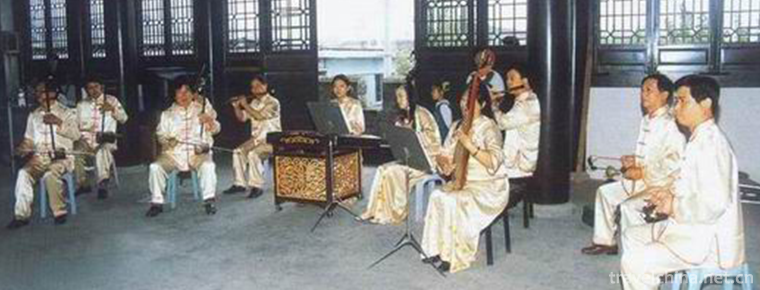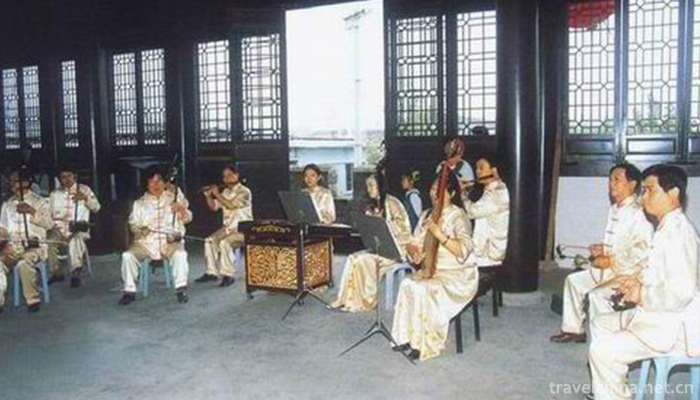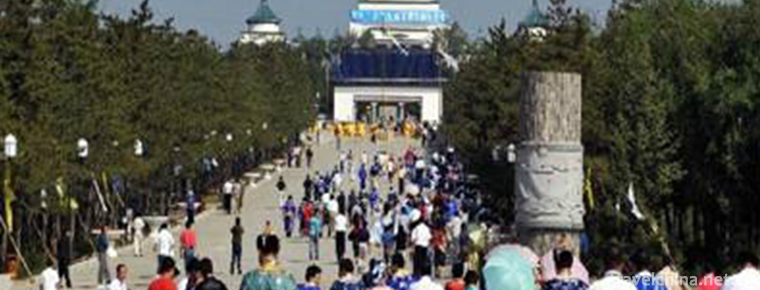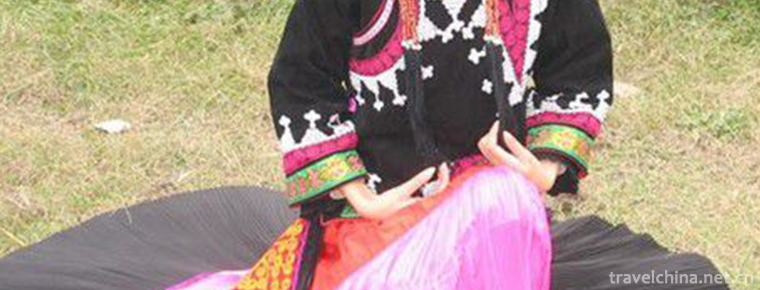2018-10-30

- By ChinaWiki.net
- Chinese Edition
- 2019-06-14
Shaoxing Ci Tone
Shaoxing Ci Diao, also known as Flower Diao, is commonly known as vernacular. It is a traditional folk song sung by blind artists (most of whom are women), and a story sung by three to nine people in different roles. It is a kind of folk art that transits from playing Ci to spreading reeds. It is popular in Shaoxing City of Zhejiang Province and its surrounding areas.
On June 7, 2008, Shaoxing Ci Tiao was approved by the State Council to be included in the second batch of national intangible cultural heritage list.
Historical Origin
The materials of the Song and Ming Dynasties all contain information about Shaoxing's singing art of "Blind Man Workshop" and "Village Blind Man... The record of "playing and singing words" and "playing and speaking words". Shaoxing Ci Diao's existing books (songs) and contents, Lyric forms, singing forms and so on, all reflect its inheritance relationship with the words and expressions flourishing in Yuan and Ming Dynasty, which is quite an ancient variety of folk art.
On December 12, 1916, Mr. Lu Xun's family sang Shaoxing Ci Tune, a "flower tune", to celebrate Lu Mu's sixtieth birthday. It can be seen that Shaoxing Ci Tune was very popular among the public at that time.
In the 1930s, Shaoxing Ci-tune flourished, with 50 or 60 artists; in the early 1950s, there were 22 artists registered; and in the mid-1960s, there were 10 artists.
Ten artists sang in the mid-1960s.
Traditional Bibliography
The traditional long bibliography of Shaoxing Ci Dialect has 18 old biographies, only 36 of which are lost seriously, and some of them are unique bibliographies of Shaoxing Ci Dialect, and there are still more than 50 "saving poems" (the opening part).
Inheritance Significance
Shaoxing has a long history of CI tunes, rich books (songs) and ancient versions. The singing music is simple and has a certain impact on the music of Hangzhou and Ningbo. But the artists are few and far between, and the music will be absolutely brilliant. Shaoxing's cultural department is stepping up its efforts to collect information and organize young actresses to learn and inherit.

Ask a Question
Your email address will not be published.



0 Questions